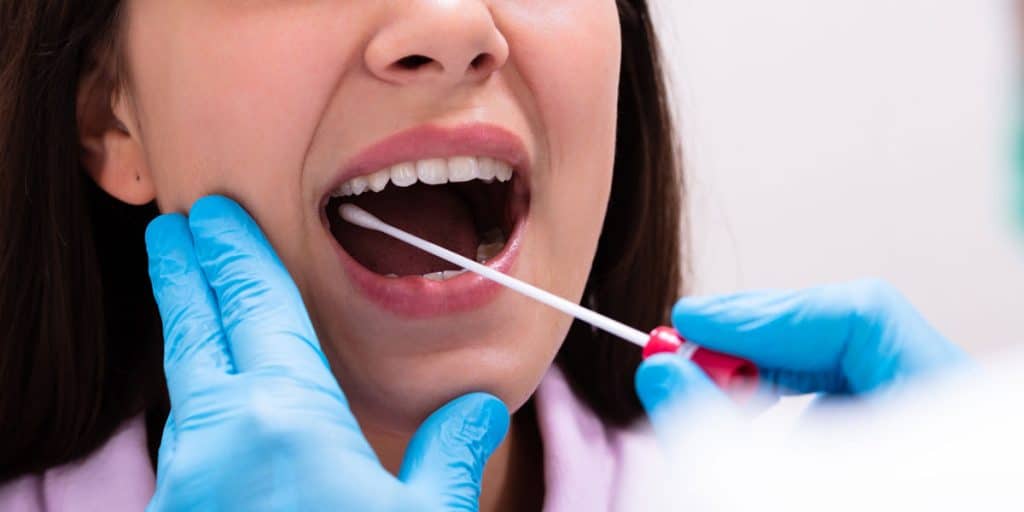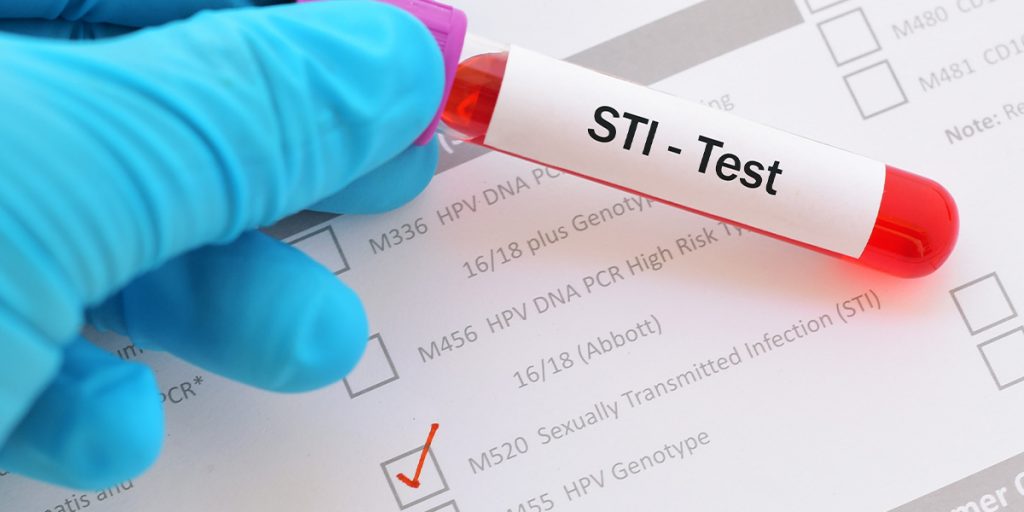We get it. A doctor’s appointment for STD or STI testing is probably (almost certainly) not how you want to spend your time. What if we told you that it’s totally normal, generally quick, and we think nearly every sexually active person should do it? Are you sold on it yet?
Ok, it’s a hard sell, but sexually transmitted infections (STIs) and sexually transmitted diseases (STDs) really are common! In 2018, 68 million people in the United States were living with sexually transmitted infections. About one in five people on any given day have a sexually transmitted infection. So, with numbers like that, we really do believe testing for STDs and STIs is wise for all adults and sexually active individuals. Because many STIs do not have noticeable symptoms, testing is essential for identifying and treating these infections.
Our Integrity Urgent Care team has compiled a guide to help ease the anxiety and questions that come along with STI testing. We know there is a negative stigma associated with STDs/STIs, and we hope this information educates and empowers you to take control of your health and pursue testing.
What Is the Difference Between an STD and an STI?
Most people use the terms STI and STD interchangeably. Maybe you’re used to using and hearing one or the other due to what you learned in school growing up. Either way, the terms are very similar but distinct.
A sexually transmitted infection (STI) comes first before you develop a sexually transmitted disease (STD). So, a sexually transmitted infection is much like other infections in your body. Parasites or bacteria invade your body, attack, and cause an infection (STI). If the condition is left untreated, a disease can develop (STD).
Diseases usually have very distinct symptoms and are easier to identify and diagnose. Infections, on the other hand, do not have observable symptoms or may have symptoms similar to other types of STIs, making testing essential for an accurate diagnosis and effective treatment.
Where Do I Get STI and STD Testing?
Your general practitioner or OBGYN physician will typically be able to test for and identify sexually transmitted diseases and infections. STI tests are not usually done as part of annual exams or physicals, but doctors are generally happy to test if you ask. Your general practitioner is one of many options though.
Because of the stigmas and urgency of STD and STI testing, many people prefer to utilize urgent care for detecting sexually transmitted infections. The teams at Integrity Urgent Care locations across Texas provide convenient, discreet, and confidential STD testing every day of the week. Integrity Urgent Care is fully equipped to test for various STIs at walk-in appointments. Sometimes when facing the unknowns of a potential STI or STD, the anonymity and convenience of urgent care are comforting.
Find an Integrity Urgent Care location today to walk in or make an appointment for testing. Because we’re open late and on the weekends, you don’t have to take off work or cancel plans for testing.
Discuss Honestly With Your Doctor
Once you have identified where you will get testing done, prepare to have open and honest conversations with your healthcare provider at your appointment. Remember, your doctor and other healthcare providers are there to help you and will keep the personal information you share confidential.

It is essential to discuss the following with your healthcare provider openly:
- Risk Factors – There are several risk factors that may increase your risk of sexually transmitted infections. You may be at an elevated risk if: you are sexually active and have unprotected sex; have sex with multiple partners; have had a partner cheat on you; have not been vaccinated for hepatitis B or HPV; have a history of STIs; have been the victim of rape or sexual assault; or misuse or abuse drugs and/or share needles.
- Symptoms – If you are showing signs of an STI or STD, discussing your symptoms with your provider is essential. Sharing your symptoms will help your provider determine which diagnostic tests to perform. Additionally, know that some STIs do not commonly present symptoms, so if you are at risk it is advised to proceed with testing regardless of the presence of symptoms. Some common symptoms of STDs and STIs include: bumps or sores on the genital area, mouth or rectal area; pain during sex; pain during urination; discharge from the penis; unusual discharge from the vagina; sore and swollen lymph nodes; fever; rash; lower abdominal pain; or unusual vaginal bleeding.
- Concerns – Additionally, share your concerns or worries about STDs and STIs with your provider. They can help provide information about STD prevention, how to talk with your partner about your testing and upcoming results, and any other concerns you may have.
What Tests Should I Get?
After discussing risk factors, symptoms, and concerns with your healthcare provider, they may ask you a few more questions about your sexual contact, the methods of protection you use, or other relevant insights. After collecting the necessary information, they will be able to make a recommendation about which STIs and STDs you should be evaluated for.
At Integrity Urgent Care, our providers across Texas routinely test for the following STIs and STDs:
- Chlamydia
- Gonorrhea
- Herpes
- HIV
- Hepatitis B and C
- Syphilis
- Trichomonas
How Are STD Tests Performed?
Because STDs and STIs are the generic terms for dozens of different illnesses, no single test is used to diagnose them. There are several methods for the diagnosis of sexually transmitted illnesses, and your provider may recommend a couple of different tests based on the information you provide.
The methods used for these tests are similar to testing for other viruses, bacteria, or health issues. Don’t sweat it! You’ve probably had blood sampled or a cheek swabbed before, which is no different.

Methods of STD testing:
- Blood tests (finger prick or blood draw)
- Urine test
- Vaginal, cervical, or urethral swabs
- Cheek swabs
- Physical exam (for women this may include a pelvic exam similar to your annual exam)
- Sampling or swabbing sores or blisters
If at any time you feel anxious or uncomfortable, express that to your healthcare provider. We understand sexual health and wellness are deeply personal, and our team wants to ensure you are comfortable and cared for. Additionally, you are always entitled to have a second provider (like a nurse, medical assistant, PA, or another team member) in the room if you prefer not to be seen in a one-on-one setting.
How Long Does it Take to Get STD Test Results?
If your STD/STI testing is performed via a physical exam or a test that does not need to be sent to a lab, our provider will provide results at your appointment. Other tests need to be sent out to a lab for analysis. These results may take a few days up to two weeks before results are received. Our team will call you with the STD/STI test results once we have received them.
After a Positive STI or STD Test Result
If your STD or STI test does yield a positive result, we’ll be ready to help. Many STIs are treatable with antibiotics or an antiviral drug. Your physician will provide detailed information about your diagnosis and what to do next. Most STIs are easily treated, and many do not experience a recurrence of the infection. The Integrity team can talk you through the diagnosis and how the treatment works and answer any questions about your diagnosis.
In addition to following your doctor’s directions for treatment, you will want to notify your sexual partners of your diagnosis. The CDC and others provide resources to help you navigate how to communicate about your STD.
After treatment, you will likely need to be re-tested about three months after your antibiotics or prescribed regimen.
Detection and treatment of STDs and STIs are vitally important for your health and the health of your sexual partners. The Integrity Urgent Care team evaluates patients daily for sexually transmitted health challenges, and we can help you too. Schedule an appointment or walk-in today to get tested.



